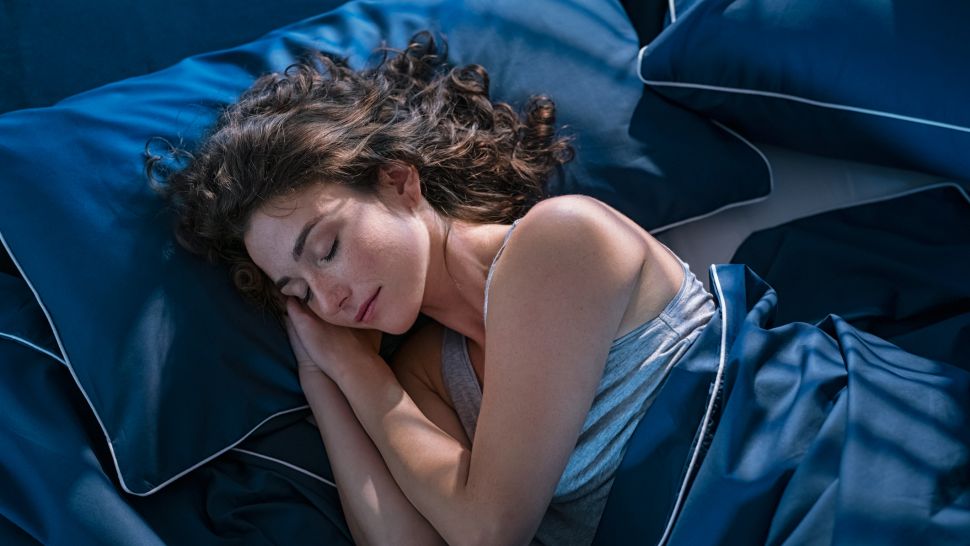The best sleeping environment is a quiet, dark room with an optimal temperature. Improving your sleep environment can help you rest better and get a good night’s sleep.
Temperature and Sleep
For most people, the best sleeping temperature is between 16 and 19 degrees. Bedroom temperature can have a key influence on sleep. This is why it is often more difficult to sleep in a cold room or during the hot summer months when heat waves cause higher night temperatures.
One connection between temperature and sleep comes from the body’s circadian rhythms. Circadian rhythms help control daily cycles in the body. In response to environmental cues such as sunlight, circadian rhythms regulate a wide range of biological functions, including sleep and wake times, metabolism, and body temperature.
The body’s core body temperature is usually around 37 degrees Celsius, but it varies slightly throughout the day. As the sun goes down and darkness sets in, the body’s temperature begins to drop and the body begins to release more sleep hormones such as melatonin. Core body temperature continues to drop while a person sleeps, reaching a low point sometime in the early morning hours.
This nocturnal drop in body temperature is an important signal that tells the body it’s time to sleep. However, if the sleeping environment is too hot or too cold, falling asleep can be more difficult.
Moisture and sleep
High humidity can also have a negative impact on sleep, especially in combination with higher temperatures. For general comfort, most experts recommend maintaining indoor relative humidity between 30% and 50%.
Relative humidity refers to how much moisture is in the air relative to the temperature. High levels of relative humidity can make the air hotter than the room thermometer indicates. For example, high humidity can make 25 degrees Celsius feel more like 30 degrees.
When there is too much moisture in the air, the sweat on the body evaporates more slowly. As a result, it is more difficult for the body to cool down. This interferes with the normal nocturnal drop in core body temperature that helps promote sleep. During the hotter summer months, using an air conditioner to cool the bedroom can help keep the humidity in the room at a comfortable level.
Low humidity levels can occur during the colder winter months, in dry climates, and when using a heater. This lack of moisture in the air can also lead to unpleasant symptoms such as dry, itchy skin and eyes. In areas where humidity is very low, a humidifier can help add moisture back into the air in the room.
Effect of Noise on Sleep
Whatever the source of the loud noise, the effect is usually the same. Exposure to noise at night causes poorer sleep quality. A normal sleeper goes through three stages of non-rapid eye movement (non-REM) sleep and one stage of rapid eye movement (REM) sleep. The body and brain go through these stages several times a night. Stage 3 of non-REM is associated with the deep sleep required to make a person feel fully rested.
Exposure to noise alters this normal sleep pattern. Exposure to even low levels of noise resulted in more frequent sleep interruptions and less time spent in REM and stage 3 non-REM sleep. As a result, one is less likely to feel well-rested and refreshed in the morning.
Effect of Light on Sleep
It is no coincidence that one feels more alert after the sun rises and sleepier after the sun sets. This is because the body’s circadian rhythms try to synchronize with changes in light levels to help control when waking and falling asleep should occur.
Exposure to large amounts of natural light in the morning can be a powerful tool to help maintain energy throughout the day. Bright light from the sun is particularly effective. Nowadays, however, exposure to light usually doesn’t end when the sun goes down. Indoor and outdoor lighting, as well as the screens of televisions, computers, and smartphones, expose a person to light even after the usual bedtime.
The body is most sensitive to bright light one hour after waking up, two hours before going to bed, and throughout the night. As a result, exposure to artificial light late at night can make it difficult to fall asleep. This is especially true for devices that emit blue light, a wavelength that mimics the effect of sunlight.
Scientists are still conducting research on exactly how different types and levels of light affect sleep, but health experts agree that a dark room is best for sleep. It’s also a good idea to dim the lights and avoid screen time for at least 30 minutes to an hour before bed.
